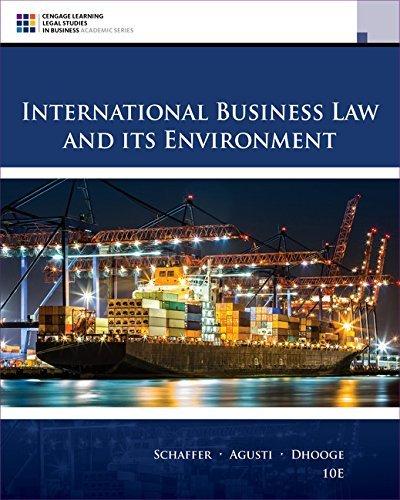The United States contracted with Transatlantic Financing, the operator of a cargo ship, to transport wheat from
Question:
1. Did the parties agree on what would happen if the Suez Canal had closed? In other words, did they allocate the risk of closure? Would that have changed the result?
2. What is Transatlantic's argument? If admiralty law implies that a ship's journey will be by the "usual and customary" route, why did the court not hold that the contract had become impossible to perform? How does the court define "impossible?"
3. Did Transatlantic's performance become impracticable? How difficult was it for Transatlantic to take the alternate route around Africa?
4. Suppose it had been bad weather instead of a blocked canal? Would the case outcome have been different? How about a tsunami? What if a government order had prohibited the ship from departing Texas?
Fantastic news! We've Found the answer you've been seeking!
Step by Step Answer:
Related Book For 

International Business Law And Its Environment
ISBN: 9781305972599
10th Edition
Authors: Richard Schaffer, Filiberto Agusti, Lucien J. Dhooge
Question Posted:





